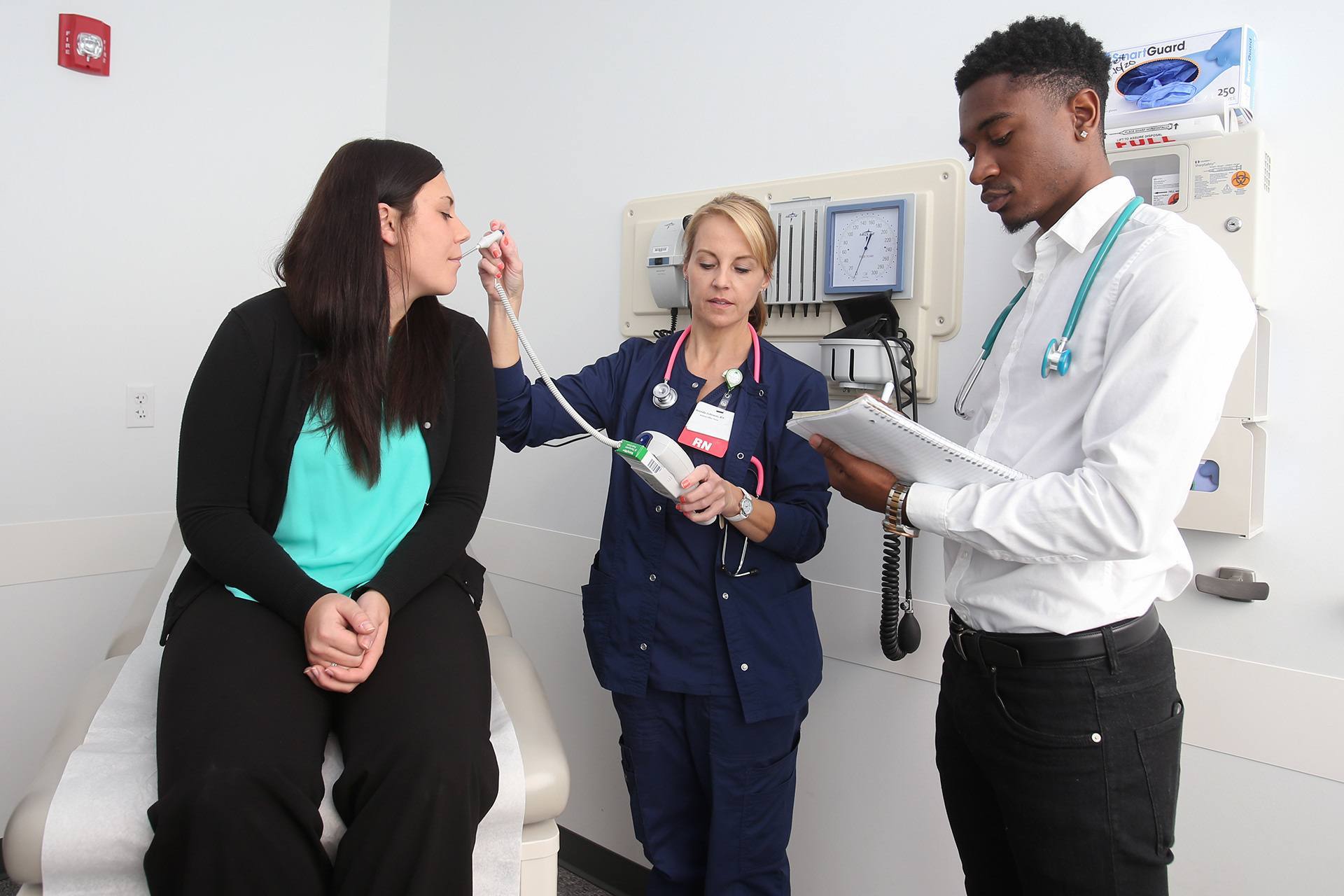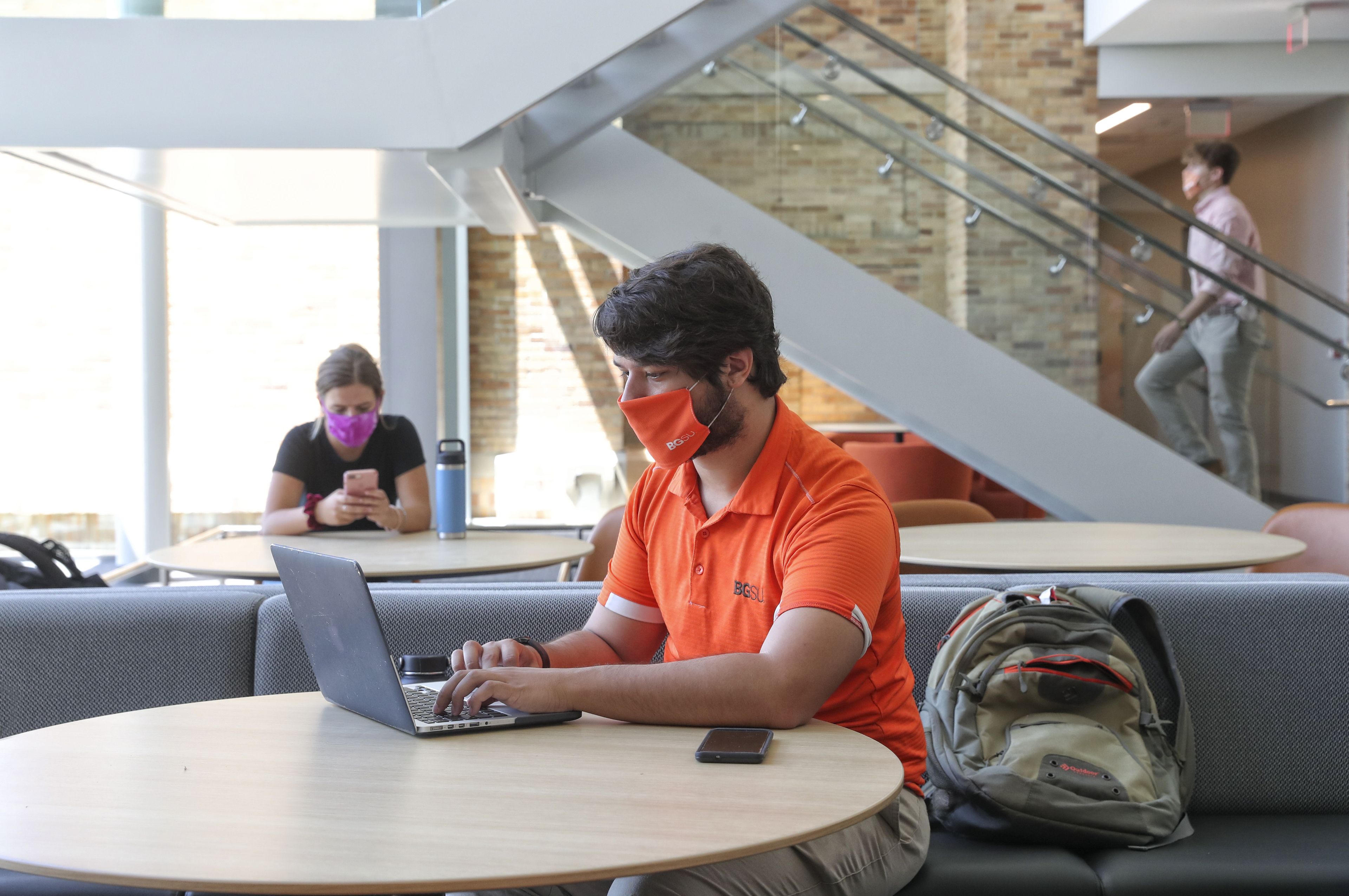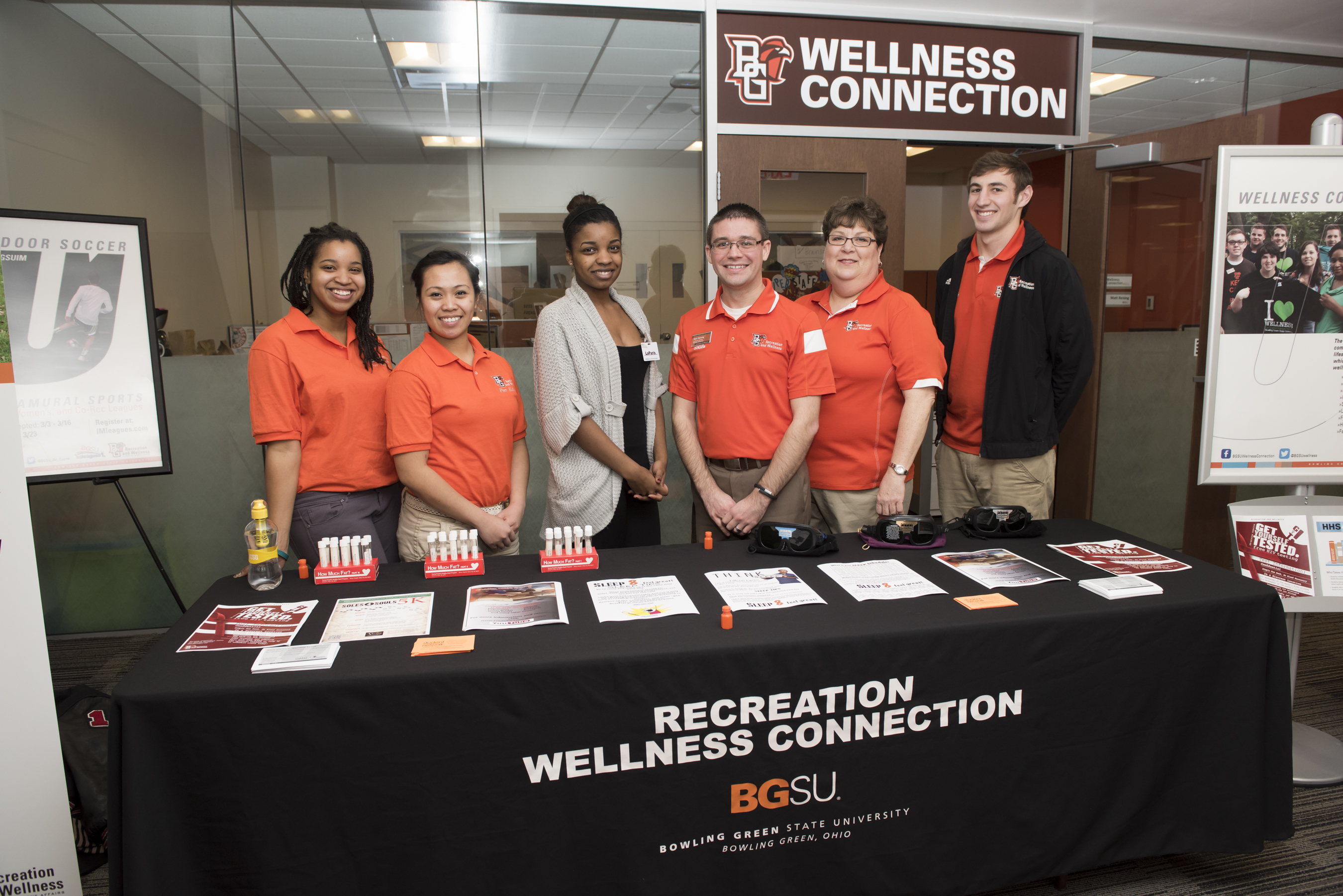Mental and Physical Well-Being
Each member of our BGSU community, including our students, faculty, staff, parents and families, must work together to promote mental and physical health and well-being. Let us be part of a community where we support one another with kindness and understanding.
Mental Health Resources
On-Campus Resources
- BGSU Counseling Center* 419-372-2081
- THRIVE Initiative Campus-wide comprehensive well-being initiative
- BGSU PAWS Team Volunteers and certified therapy dogs
- Accessibility Services 419-372-8495
- BGSU Police (24/7) 419-372-2346
- Falcon Health Center* 419-372-2271
- Office of Parent and Family Programs 419-372-0438
- Office of the Dean of Students 419-372-2843
- Office of Health and Wellness 419-372-WELL (9355)
What you can do
- Hopelessness
- Rage, anger, seeking revenge
- Acting reckless or engaging in risky activities, seemingly without thinking
- Feeling trapped – like there's no way out
- Increasing alcohol or drug use
- Withdrawing from friends, family or society
- Anxiety, agitation, unable to sleep, or sleeping all the time
- Dramatic mood changes
- No reason for living; no sense of purpose in life
When you should be highly concerned if someone:
- States “I want to kill myself”
- Having a plan or looking for means to kill themselves
- Extreme self-neglect (prolonged lack of hygiene, not eating for extended periods of time)
- Disconnected with reality (disorganized thoughts or speech, hallucinations, supernatural beliefs)
- Cutting with serious or neglected wounds, violent behavior
When you should be concerned, but not emergent if someone:
- Expresses thoughts of suicide with no plans to act
- Withdrawn, short term appetite loss
- Short term lack of sleep
- Frequent crying
- Cutting with superficial wounds, angry mood
Don’t be alone in your concerns. Tell a supervisor, RA, advisor, etc. about your concern. You can always contact the Counseling Center to discuss with a professional to gain insight and advice on how to address your concern.
If you have a friend in need, let them know you are willing to help if they need it. Here are a few ways you can help:
- Show you care.
- Make yourself aware of resources and reporting.
- Share a personal positive experience of seeking help, it can make the situation less threatening.
- Respect their limits.
- Offer to go to the Counseling Center with them or sit nearby while they make the phone call.
- If someone does not want help, you can call the Counseling Center and speak to a counselor to get additional ideas for future conversations.
- Ask. Be specific about your concerns when talking to them. “You haven’t left your room in over a week.”
- Express care and concern.
- Make time and space for the conversation. Do it in a safe, private space and make sure you have time to talk to them.
- Ask if and how you can help them. Remember that you don’t have to be their counselor. You can always call the Counseling Center and speak to a counselor to get additional ideas for future conversations.
- Don’t beat around the suicide bush. If you are picking up on thoughts of suicide, ask them about it directly.
- Encourage or assist them in seeking help, if needed.
- Refer them to the Counseling Center or other help centers.
- Share with others the risk and preventative factors of suicide.
- Reinforce preventative actions individuals can take if they are having thoughts of suicide or know someone who may be.
- Educate yourself on the warning signs of suicide and become an advocate by Starting The Conversation with other individuals.
- Provide concrete steps for finding help. Inform the person that help is available through the National Suicide Prevention Lifeline and through established service providers and crisis centers.
Off-Campus Resources
- Thriving Campus* A resource to connect students to off-campus providers specializing in mental health needs
- 988 Suicide & Crisis Lifeline* Call or text 988 or chat 988lifeline.org
- Crisis Text Line*
Text HOME to 741741 for a counselor
Text STEVE to 741741 for a culturally competent counselor - The Cocoon (24/7)* 419-373-1730
- Wood County Crisis Line (24/7)* 419-502-HOPE (4673)
- NAMI Wood County National Alliance on Mental Illness
- Harbor Behavioral Health 419-352-5387
- Wood County Hospital Emergency Room 419-354-8910
- Veterans Crisis Line Dial 988 and press 1, or text 838255
*Denotes service providers with confidential resources
We Can Talk About It
When the world doesn’t listen, be the friend who does. Reach out to a friend and start a conversation about mental health. It can make a big difference.
Physical Health Resources
Updated: 10/16/2025 03:16PM




